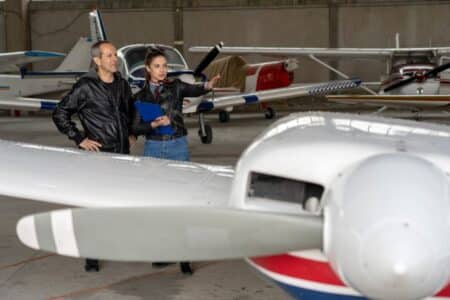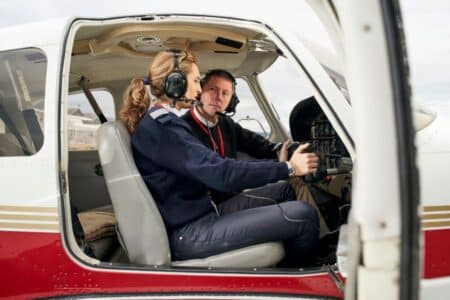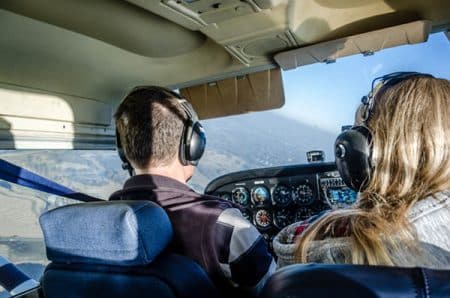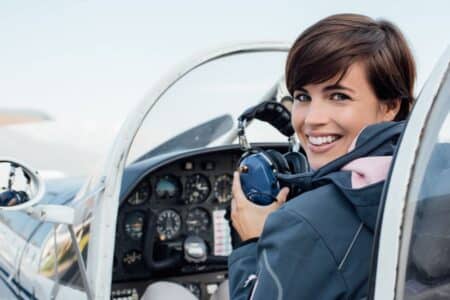Learning to fly can be an incredibly rewarding experience, but unfortunately, there are several common misconceptions about the process that can discourage people from pursuing their dreams of becoming a pilot.
In this article, we explore five of the most common misconceptions about flight training and debunk them to help you better understand what the process of becoming a pilot entail.

Flying is Only for the Wealthy
One of the biggest misconceptions about learning to fly is that it is an expensive hobby reserved only for the wealthy.
While it’s true that flying can be expensive, there are many options available to help make it more accessible.
For example, many flight schools offer financing options or payment plans to help students spread out the cost of training.
Additionally, there are scholarships and grants available specifically for aviation students that can help offset the cost of training.
Furthermore, if you are interested in flying for a career, many airlines offer their own training programs or financial assistance to help aspiring pilots achieve their goals.
Flying is Dangerous
Another common misconception about flying is that it is a dangerous activity.
While there is inherent risk involved with any form of transportation, flying is actually statistically one of the safest modes of transportation available.
According to the US National Transportation Safety Board, the number of general aviation accidents has decreased by 20% over the past decade, while the number of fatalities has decreased by 25%.
Furthermore, flight training is designed to teach you how to manage risk and make safe decisions in the air, further reducing the risk of accidents.
Flying Requires Exceptional Physical Fitness
While it is true that being physically fit can be beneficial when learning to fly, it is not a requirement for becoming a pilot.
The Civil Aviation Authority (CAA) does have some physical requirements for pilots, but they are relatively minimal and are designed to ensure that pilots are capable of safely operating an aircraft.
Additionally, many accommodations can be made for individuals with disabilities to allow them to fly.
For example, the CAA allows pilots with certain medical conditions to fly with the use of medication or special equipment.
Flying Requires a High Level of Maths and Science Knowledge
While there is some maths and science involved in flying, it is not necessary to have a high level of knowledge in these subjects to become a pilot.
Most flight schools will teach you everything you need to know about the physics of flight, navigation, and other relevant topics.
Additionally, there are many online resources available to help you brush up on these topics if you need to.
The most important thing is to be willing to learn and put in the effort required to master the material.
Flying is Only for Young People
Some people may believe that flying is a young person’s game and that it may be too late to start learning later in life.
However, this could not be further from the truth. There is no age limit for flight training or becoming a pilot.
Many people start learning to fly later in life, and some even choose to pursue a career in aviation after retiring from another profession.
In fact, some airlines have specifically targeted older individuals with no prior aviation experience to become pilots, recognising the value of the life experience and maturity they bring to the role.
Whether you are young or old, it is never too late to pursue your passion for flying.

Learning to fly a challenging and rewarding experience that can open up a world of opportunities.
However, it is important to recognise and dispel common misconceptions about flying that can discourage people from pursuing their dreams.
Flying is not just for the wealthy or physically fit, and it does not require a high level of maths or science knowledge.
By understanding these misconceptions and seeking out the resources and support you need, you can achieve your goals of becoming a pilot.
Do not let these misconceptions hold you back from experiencing the thrill and excitement of flying.





